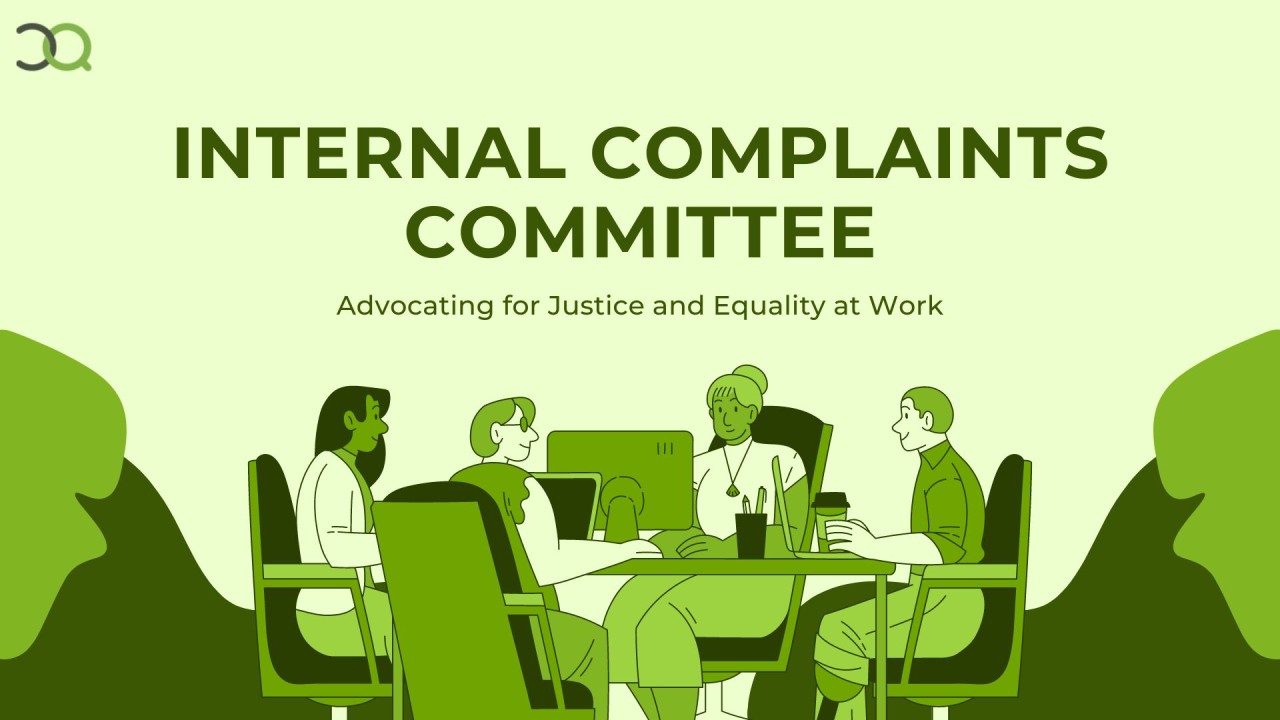Sexual Harassment Violates Women’s Rights Under Articles 14, 15, and 21
The Sexual Harassment of Women at Workplace (Prevention, Prohibition and Redressal) Act, 2013, commonly referred to as the POSH Act, is a significant piece of legislation in India aimed at preventing sexual harassment against women in the workplace. Internal Complaints Committee is an essential element to enforce the legislation.
Indian law treats sexual harassment of women at the workplace as a cognizable and bailable offence. The act requires that every employer should constitute a Committee to be known as “Internal Complaints Committee” by an order in writing. Multiple committees should be created, one for each different office location.
Roles & Responsibilities
- Modifications in complaint filing process (Sec 9) :
- In case where a written complaint of sexual harassment is a challenge, the presiding officer or any member of the committee will give all reasonable assistance to the woman to enable her.
- Committee can also extend the time limit for filing sexual harassment complaint by recording the reasons in writing. If the committee is satisfied that the aggrieved woman could not file the complaint due to certain circumstances.
- Conciliation before initiating inquiry (Sec 10) :
- If the aggrieved woman requests, the internal committee should take steps to settle the matter through conciliation. Monetary settlements are barred in such process. Committee does not need to conduct any further inquiry.
- Internal Complaints Committee should record and forward the recommendations to the employer, if settlement is arrived at.
- Committee should also provide the copies of settlement to the aggrieved woman and the respondent.
- Inquiry Process (Sec 11):
- Committee should proceed with the inquiry in accordance with the service rules, if the respondent is an employee.
- The Committee shall proceed to make an inquiry into the complaint if informed by the aggrieved woman that the terms or conditions which are arrived at during the settlement are not complied by the respondent.
- If both the parties are employees, the committee should give an opportunity of being heard to them during inquiry. Once the inquiry process is complete, both the parties should receive the findings about the inquiry so that they can make representations against the findings.
- For inquiry process, the committee can exercise same powers as are vested in civil court in matters of : Summoning & Enforcing attendance of any person and examining on oath; Requiring the discovery and production of documents; any other matter as prescribed.
- The inquiry process should be completed within 90 days.
- Action During Pendency of Inquiry (Sec 12) :
- On a written request by the complainant, Committee may recommend the employer to : a) Transfer of the aggrieved woman or respondent b) Grant leave to the aggrieved woman upto 3 months c) Grant such other relief to the aggrieved woman as prescribed.
- Inquiry Report (Sec 13):
- Within 10 days from the completion of the inquiry the committee shall provide the report of its findings to the employer. The concerned parties will also receive the report.
- Committee should recommend the employer that there is no need for any action, if the allegations against the respondent are not proved.
- Committee should recommend actions, if the allegations against the respondent are proved. Actions should be taken in accordance with the service rules or in such manner as prescribed. Committee can also recommend deduction in salary of the respondent. Aggrieved woman or her legal heirs will receive the amount deducted from the respondent’s salary.
- If incase respondent fails to pay the sum, the committee can forward the order for recovery of the sum as an arrear of land revenue. This order will be forwarded to the concerned District Officer.
- Punishment for false or malicious complaint & false evidence (Sec 14) :
- Committee can recommend the employer to take action against the guilty of false complaint or evidence. Actions will be taken as per the service rules & in its absence based on the prescribed norms.
- Determination of Compensation (Sec 15):
- Committee will decide the sum to be paid to the aggrieved woman taking in consideration : Mental Trauma, Distress, Loss in career opportunity, medical expenses incurred etc.
- Duty to protect data (Sec 17):
- Committee should handle the contents of the complaint & the inquiry proceedings to prohibit the publication of the same.
- Annual Report (Sec 21):
- Each calendar year, the committee should prepare an annual report in the form and at a timing as prescribed to the employer.
The committee’s recommendations carry significant weight, guiding employers in taking appropriate actions based on the findings of their inquiries. This reinforces the organization’s commitment to maintaining a workplace free from harassment and discrimination. Ultimately, it is instrumental in promoting a culture of accountability and respect, aligning with the broader objectives of the POSH Act to protect women’s rights in the workplace.
If incase you need any legal assistance you can now try our AI Legal Advisor.



